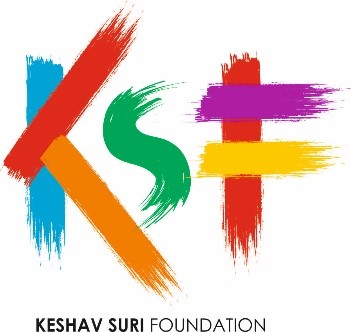Mental health has always been an integral part of our lives, even though it is not discussed enough. Today, we talk to DEI expert Mr Akshay Tyagi, from the Keshav Suri Foundation, who is not leaving any stone unturned to bring attention to these challenges, especially when it comes to the marginalised communities of the society. The foundation will be hosting mental health counselling for the queer communities across 6 cities in the coming few months. Here is what he shares:
 Q1. Highlight the mental health challenges faced by the queer community in India? Do you think they are amplified in a pandemic/lockdown situation? What can we do to tackle them?
Q1. Highlight the mental health challenges faced by the queer community in India? Do you think they are amplified in a pandemic/lockdown situation? What can we do to tackle them?
We live in a society that shames anyone and everyone who doesn’t fit in an “ideal” stereotype. The queer community is shunned for being different, they carry immense guilt of not being the ideal/desired child to their parents and constant fear of being outed or thrown out of their families, which takes a huge toll on their mental health. Police brutality (especially in the case of trans), discrimination, and bullying doesn’t make it any easier for the queer folks to survive and maintain a livelihood.
Yes, during the pandemic the mental health challenges faced by the queer folks and other marginalised communities are amplified. Queer folks are forced to live with homophobic families and pushed back into the closet, they face loneliness and depression, as their livelihood is fleeting and they struggle to make ends meet.
The world could use some empathy, only if we weren’t so quick to tear each other down. We should stop addressing them, using slurs and treat them with respect. The government should create policies that make violence against queer folks illegal and should be provided with the same employment opportunities as everyone else.
Q2. What major differences do you see in the challenges faced by the community in India and other developed nations?
Queer folks across the globe have had to struggle and fight for their rights. However, many developed nations have reforms and laws to protect the marginalized. Individuals feel emboldened and society prepares itself for changing in the right direction when the government of the day and law of the land supports you. Unfortunately, that is not the case in India. We have no laws that deem violence against queer. When threat to your social and bodily existence is not ever looming, only then one can think about growing fully into their lives and self-acceptance is not always such a struggle.
Health providers, companies, and other social institutions can start to support the community, and join the conversation of empowering the queer community. When struggles keep piling on a person, life can seem very bleak. As society we can work on making queer lives safe and stable by providing equal job opportunities, creating positive role models and changing the narrative about the community.
Q3. What do you strive to achieve through this workshop?
We are conducting these mental health workshops primarily to understand and shine light on the mental and health needs of the queer community in India and see what knowledge, skills and tools we need to address those needs. We are hoping to eradicate the stigma around the LGBTQIA+ communities and mental health, and create a dialogue for meaningful conversations about ways to enhance the lives of the queer folks.
The emotional wellbeing of the queer community has been ignored for a long time now, and the pandemic has proved how much and how urgently do we need to pay attention to it. Although the urgency to know about the importance of mental health has increased over the years, these conversations were delayed due to the stigma around it. We look forward to helping the queer communities maintain a good mental health.
Q4. What kind of preparations/plans do you have for it?
We will be conducting psycho-educational seminars and emotional skill building workshops for the community, which will be an amalgamation of brain stimulating activities and games. We will provide information about the causes, symptoms, prognosis, and treatments of certain mental health challenges. Through this workshop you can find out what to expect, what you can do, and how to improve your condition.
Q5. Any message for the community and allies?
Self-acceptance is the best starting point for our journeys, once we have that reasonably covered, family, friends, government and God will follow. As allies, the best we can do is be supportive, empathetic and know that your work is making a difference. We are all unique, we all come from different cultures, and upbringing, we have different interests, and it should be completely normal for people to have different sexualities and gender orientations. Instead of being ignorant towards this, let us all educate ourselves to make each other feel comfortable in our own skin. Practicing inclusion and celebrating diversity is the way to build a compassionate society.



